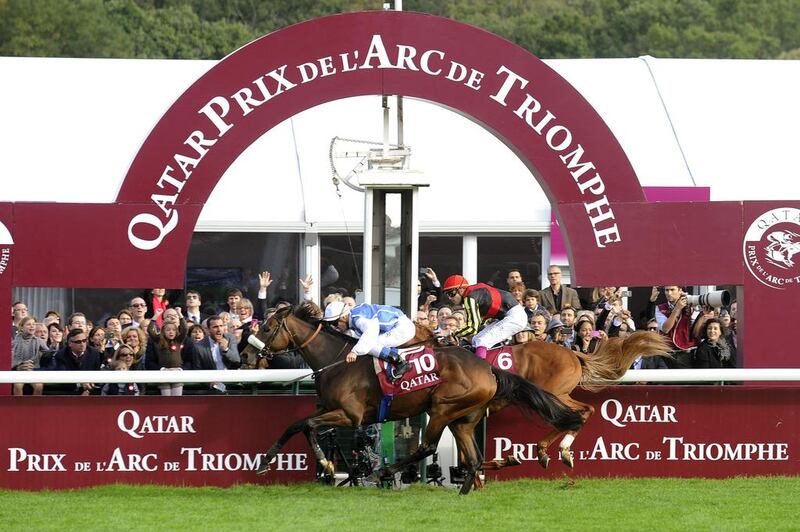LONDON // Breeders from around the world underlined the difficulties that the Purebred Arabian industry faces in trying to attract young people willing to take the large financial risk of producing horses of racing quality at the World Arabian Horse Racing Conference yesterday.
The number of Purebred Arabian horses being produced has fallen dramatically in recent years in many racing jurisdictions around the world.
Despite a huge investment in prize money and bedrock initiatives in the UAE and in other parts of the world, the industry is finding it hard to recruit young people to what has always been a dicey, yet potentially lucrative, business.
Significant funds have been pumped into the sport through series, such as the President Of The UAE Cup and the HH Sheikh Mansoor Bin Zayed Al Nahyan Festival.
With races such as the €700,000 (Dh3.5m) Qatar Arabian World Cup at Longchamp on the same card as the Prix de l’Arc de Triomphe each October, there is ample reward at the highest level for those willing to take the plunge.
“In Britain we have seen the disappearance of quite notable breeders in the past 10 to 12 years and I think it is down to finance,” said Richard Lancaster, director of Sheikh Hamdan Bin Rashid’s Shadwell Stud in England.
“If you look at the average age of breeders it is closer to 45-50 than the age of our children. If people can see they can make money out of it they may come back in again.”
Some of the initiatives employed in an effort to incentivise newcomers to make a career in breeding include reducing stud fees to giving mares away for free with breeding rights attached.
Sheikh Hamed bin Khadem bin Butti Al Hamed, a prominent UAE breeder, said that Sheikh Mansoor has made huge strides in making it easier for young people to get into breeding Purebred Arabians.
“Sheikh Mansoor has done so much. He is giving free land to breeders in Abu Dhabi, so that is encouraging a lot of people,” Sheikh Hamed said.
“Vets can come to your farms to check your horses free of cost as well. This initiative is not just for Arabian horses in training but all of them – showjumping, endurance, everything.”
Breeding racehorses is just one aspect to the breeding business model, with the potential to create stallions and broodmares a more likely avenue to sustainable profit.
A third revenue stream is breeding to sell and it was announced this month that an International Arabian racehorse sale would be staged in August in Britain to, “encourage the growth of Arabian racing and breeding worldwide”.
Paul Simmons, 36, who has been breeding and racing Purebred Arabians for the past 16 years in England, welcomed the sale.
“The sport became too top heavy,” he said.
“I may breed one or two foals a year, and if you want somebody like me to breed more I need somewhere to sell and the sale in August will help greatly.”
More than 350 delegates assembled at the St James’ Theatre in London to usher in the fifth annual conference, which extends to three days and culminates in two races at Newbury on Saturday and an endurance ride outside Newmarket.
The conference is staged under the umbrella of the HH Sheikh Mansoor Bin Zayed Al Nahayan Global Arabian Horse Racing Festival.
“We are happy that there are representatives from over 32 countries over the next three days,”said Abdulrahman Al Mutawee, the UAE Ambassador.
“This is a significant event and we are glad that it is being staged here in London, which is a prominent centre for horse racing.”
sports@thenational.ae
Follow us on Twitter at SprtNationalUAE





